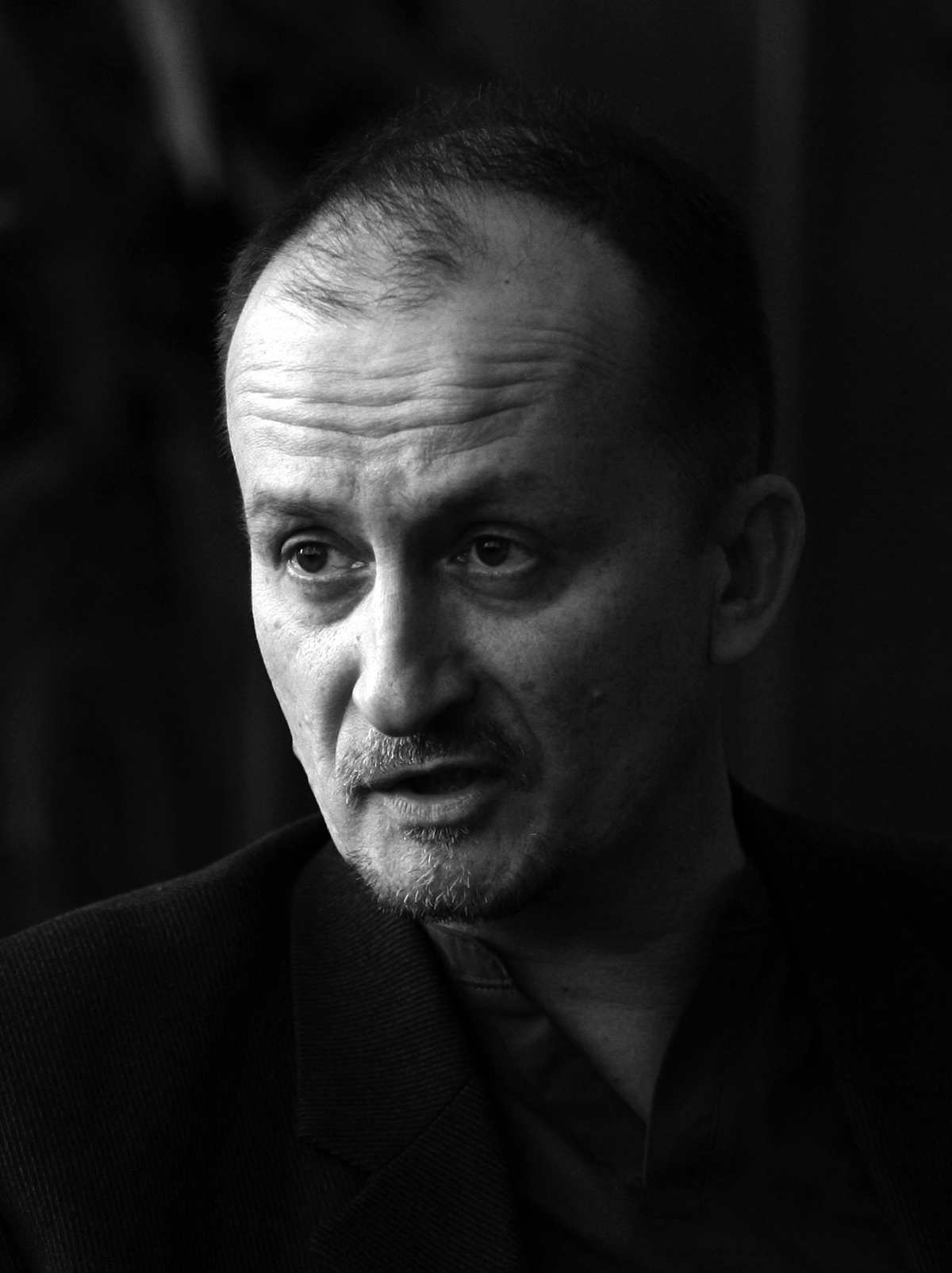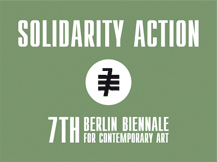
The Chief Executive of the National Library of Serbia, Sreten Ugričić, signed a public letter as a member of the Belgrade Writers‘ Forum criticizing the public defamation of Montenegrin writer Andrej Nikolaidis. Following this, he was accused by the Serbian government of supporting terrorism and dismissed without notice from his position as Director of the National Library of Serbia.
Sreten Ugričić, author, philosopher, astronomer, conceptual artist, and until recently Director of the National Library of Serbia gave a reading last December on Saint Nicholas Day at the Theater am Neumarkt in Zurich. There, he presented his essay Das Leben ist Ausland (Life is Abroad), which he had written for the 2011 Leipzig Book Fair. When I say “presented”, it sounds dry, or even boring, while quite the opposite is true. It was a witty, inspirational evening. The Zurich audience reacted in an uncharacteristic manner, became actively involved and did not show any signs of tiredness although the evening’s event ultimately lasted two and a half hours. Following Sreten’s visit, I promptly decided to call to life a new series of events titled “Life is Abroad”. I wrote to Sreten and told him that, as his work had inspired this name, I would like to invite him as a guest, this time to present his novel To the Unknown Hero.
He answered me with the following mail: “Last few days I am in all media here, main news, because my Government wants to kick me out from the library. Minister of Police (who was in nineties among the closest assistants of Slobodan Milošević) yesterday told to journalist that I must be put in prison immediately because I support the assassination on our president Tadić. What can I tell you.”
Of course, I didn’t know what was going on. And there was no way I could write back and ask for more details. The fever and urgency expressed in these few lines revealed that Sreten had other things to worry about than me and my concern, or my questions about exactly what had happened. I started searching like crazy on the Internet, looking for his name, and it didn’t take long for something to turn up. A few hours after I had received Sreten’s mail, I read on a website that he had already been dismissed as the Director of the National Library. It said that the decision had been reached following an urgent government teleconference. It wasn’t until later that I found out the Minister of Culture, who had apparently stood up for Sreten, was the only one who had not taken part.
So how could Sreten have been removed from his position, despite the fact that the National Library had come to enjoy an international reputation during the years in which he was its Director? Despite the fact that the employees said of him, he was not only responsible for introducing technical innovations, but also placed a great deal of value on and encouraged cooperation and dialogue?
On 9 January, there were celebrations in Banja Luka in honour of the twenty-year anniversary of the foundation of “Republika Sprska”, a political entity of Bosnia. Political representatives from the Republic of Serbia, President Boris Tadić, Prime Minister Mirko Cvetković and Minister of the Interior Ivica Daĉić came to Banja Luka to take part in the celebrations. On the evening before, police discovered an arsenal of weapons, ammunition and explosives in the basement of the sports hall where the event was to take place. In response, the Montenegrin parliamentarian and author Andrej Nikolaidis wrote a polemic commentary in an online medium on 11 January which one could refer to as ironic in tone, in some places even unreflected. Keeping in mind the fact that the Republika Srpska came into being on the basis of murder and expulsion, Nikolaidis asked whether it would not have been a “civilisational step forward”, if the explosives had gone off. The Belgrade press, and above all the government-friendly “Politika” quoted exactly this sentence from Nikolaidis’ text (which can be read at www.e-novine.com) in the full knowledge that the readers would be shocked, even hysterical in their reaction to it. The expected happened – the headlines vied to outdo one another in their venom and Nikolaidis was treated as a terrorist.
In response to this witch-hunt, the Forum of Writers felt obliged to issue a public plea clearly supporting freedom of expression and urging for the personal protection of Nikolaidis. It demanded that the media “Fatwa” against Nikolaidis be lifted and called for his speech to be published in full, so that the readers could reach their own conclusions about it. Sreten Ugriĉić signed this petition thus attracting the media witch-hunt in another direction. The tabloid newspaper “Press” headlined with: “That could only happen in Serbia: National Librarian supports the murder of President Tadić”.
The reaction of some members of the Serbian government did not take long and calls were issued for Sreten to step down immediately as Director of the National Library. That wasn’t enough for Minister of the Interior Ivica Daĉić, who argued in favour of throwing Sreten into prison as a supporter of terrorism. Ivica Daĉić, let it be known, was chairman of the Socialist Party during Milošević’ last years in power and a man who has never distanced himself, either publicly or explicitly, from the decisions taken by Serbia’s political elite during that time; nor has he ever accepted any responsibility for the role he played.
Why, one might ask, has the Director become the focus of so much hostile attention?
Sreten was appointed Director of the National Library ten years ago by Zoran Djindjic. He remained in office even after the latter was murdered, went on to modernise the library and, as already mentioned above, transformed it into a respected and much-frequented cultural institution.
He was constantly the object of hostility, incessantly, which almost certainly had to do with the fact that his speeches and literary texts had an electrifying effect, the words glowing with energy – the same energy that the audience in Zurich felt immediately in his presence. Before them, they perceived, was a man of sharp intellect, who is critical of every form of power, is capable of seeing things in a different and, in this case, a new light.
Sreten’s poetic sensibility is dedicated to a profound humaneness by declaring people capable of reaching their own conclusions and making their own decisions in life. And that, of course, is the greatest danger for all cynical authoritarian thinkers, who abuse words like democracy, constitution and freedom and, at the same time, accuse a person of being a terrorist who has done nothing else in his work and in his thinking than to advocate a free and open Serbia.
In a public speech at Belgrade’s Cultural Centre, Sreten said: “A warning to the police from a library terrorist: in the hall of the CCB there will be an explosion – not of a bomb, but of all of us present. And we shall win. Because, as you know: whoever attacks writers with a nightstick is defeated and hated from the start; while the one who reads – wins!”
Melinda Nadj Abonji
Update (6th March, 2012)
Although many people and many institutions protested against the decision of the Serbian Government, and although several international media (such as the Neue Zürcher Zeitung, the Süddeutsche Zeitung, la liberté, DRS 2, and the blog of the Berlin Biennale) published the news, the decision was not withdrawn. The successor took office a few days after the dismissal of Sreten Ugriĉić. In the meanwhile, he was given a marginal job at the National Library, as the government was obliged by law to offer him another placement inside the institution. From his office on the outskirts of the library, Sreten forcibly saw the projects he had started being cancelled, and his closest collaborators being fired. The situation became unbearable to the point that Sreten decided to live and work abroad for an extended period. He received a grant from the Landis & Gyr Foundation in Zug, and from the from Literaturhaus in Zurich, which will allow him to stay in Switzerland for several months from mid-March.
Melinda Nadj Abonji
Websites:
www.pescanik.net
www.e-novine.com
translated by lindsay-jane munro
[Translator’s note: the text below has not been translated, as it is not relevant for the English-speaking reader]
Texte von Sreten Ugričić auf Deutsch:
Das Leben ist Ausland. Ein Essay. In: Sprache im Technischen Zeitalter, Juni 2011.
An den unbekannten Helden. Roman. Dittrich Verlag, Berlin 2011.


